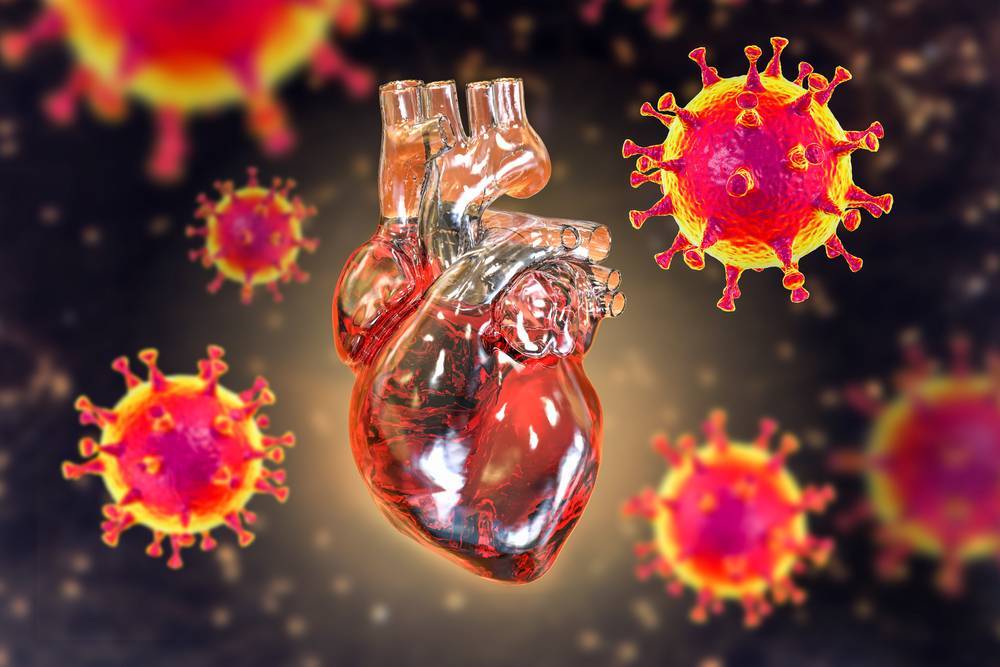COVID-19 has been reported as a strong risk factor for myocarditis, which is the inflammation of the heart muscle. This risk rises significantly for the elderly, and more surprisingly, those below 16 years of age. This read explains the observations and a possible reason why.
Other than the main symptoms of COVID: fever, cough, tiredness, loss of taste or smell, diarrhoea, generalised aches and pains etc, myocarditis – the inflammation of the heart muscle, has been widely reported as a complication of COVID-19. Though rare, it is considered one of the most serious complications of COVID-19 and could lead to death even in young patients if not treated promptly.
What is myocarditis?
Myocarditis is an underdiagnosed cause of acute heart failure and sudden cardiac arrest. Prior to the COVID era, viruses have already been a well-established cause of myocarditis. They include influenza, enteroviruses, HIV, adenovirus, and hepatitis C virus. Parasites, bacteria and some fungal species can also occasionally cause it. Auto-immune related diseases like systemic lupus erythematosus, and dermatomyositis can also be linked to myocarditis.
1.5 million cases of myocarditis were reported worldwide in 2013, and around 5% of patients who develop an acute viral illness have heart muscle complications. In general, males are far more likely to have myocarditis than females.
Common symptoms of myocarditis include palpitations (rapid and/or irregular heartbeat), shortness of breath, dizziness, and swelling of the lower legs e.g. ankles and chest pain. Hospitalisations are generally required once the diagnosis is confirmed. Medications that regulate heart rhythm, along with symptomatic management should commence immediately if indicated. Treatment for the underlying cause, like a viral infection is also cornerstone in patients with an identifiable source of infection.
What’s the link between myocarditis and COVID-19?
Similar to many other viruses mentioned above, the COVID-19 virus can cause myocarditis. It causes myocarditis directly by attacking heart muscle cells. It may also indirectly activate our own immune system which launches an attack on our own heart muscles.
Before COVID-19 the incidence of myocarditis was between 1 and 10 cases per 100,000 people per year. According to the U.S. Centers for Disease Control and Prevention, the risk of myocarditis after infection with COVID-19 is much higher, at 146 cases per 100,000. In adjusted analyses, patients with COVID-19 had, on average, 15.7 times the risk for myocarditis compared with patients without COVID-19.
Are younger COVID patients more prone to developing myocarditis?
It has been shown that in a general population, it is true that those at greater risk for myocarditis include children less than 16 years of age and the elderly. But elderly men 75 years and older still have the highest risk.
However, many people would then wonder: how could young healthy individuals with minimal to no medical history have a higher risk? Assistant Professor Louis Teo, a senior consultant at the department of cardiology at the National Heart Centre Singapore explained that younger adults with a stronger immunity could develop an overactivation of the immune response triggered by the COVID virus, which leads to a stronger attack on their heart muscle, causing myocarditis.
What about the risks of myocarditis with a COVID vaccination?
Working in the same fashion of mounting a more controlled immune response, it is then valid to ask if COVID vaccinations run the risk of causing myocarditis as well. However, a study with international data showed a much lower risk with the vaccines than contracting COVID itself. The overall risk of heart inflammation following a single COVID-19 vaccination dose affects just 1.8 people per 100,000 vaccine doses, compared to 146 per 100,000 COVID cases.
Recommendations moving forward
After more than two and half years of COVID, scientists have made significant progress in understanding this disease and developing treatment. However, two and half years is still relatively short in terms of the general timeframe we need to fully understand a disease. What might seem to be true, might be false in another 2 years’ time with more data. Take precautions, get vaccinated and trust your doctors. To read more on cardiac complications of COVID-19 and COVID-19 vaccines, click here.

